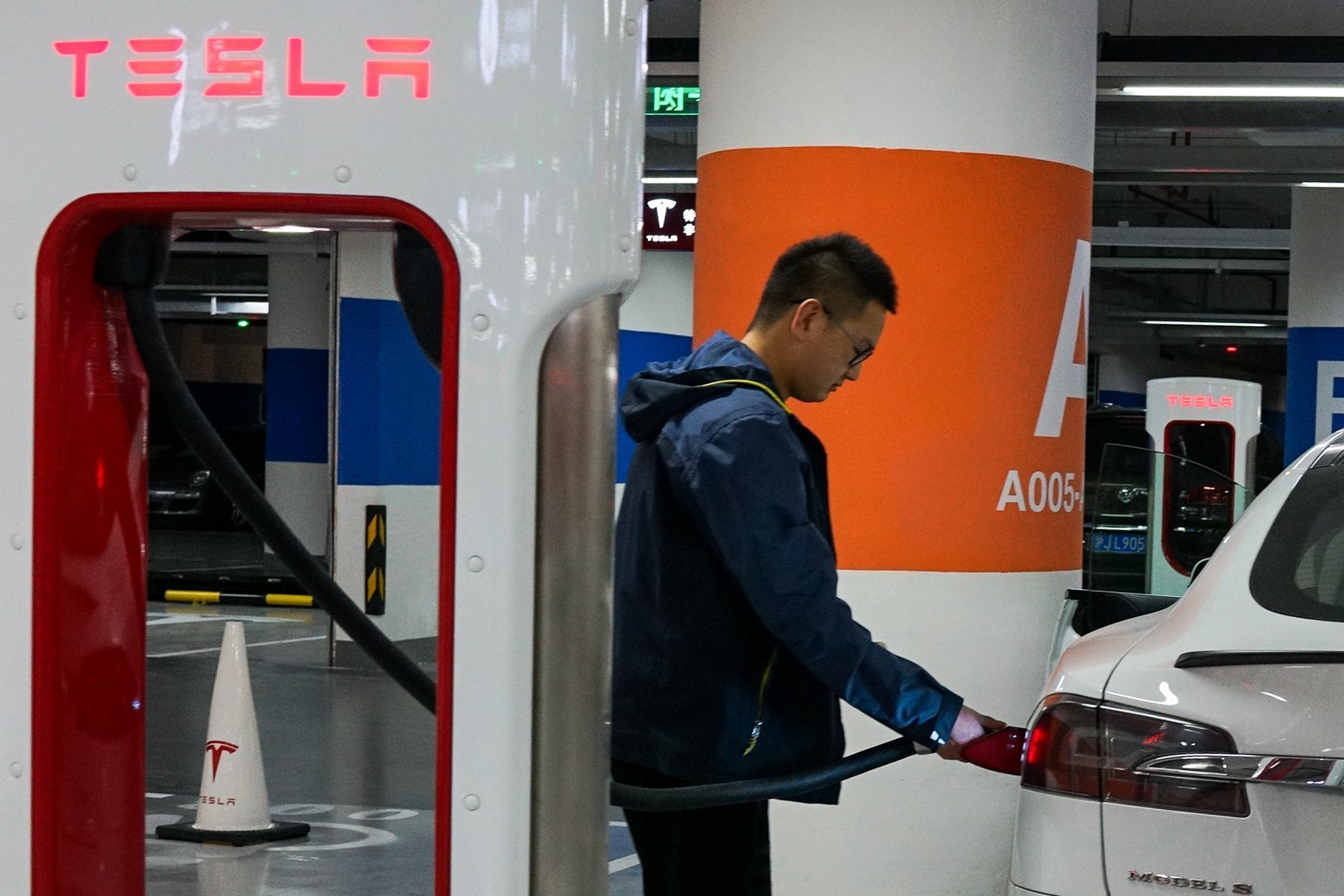Original Headline: If Tesla Wants to Go Mainstream in China, It Needs to Cut Prices

Photo: A Tesla charging station at a shopping mall in Shanghai. As of the end of September this year, Tesla has sold a total of 12,000 cars in China. The company is currently negotiating with the Shanghai government to invest and build a factory in the city. Once completed, the new facility is expected to have an annual production capacity of 150,000 units. Photo: CHANDAN KHANNA/AGENCE FRANCE-PRESSE/GETTY IMAGES
According to NetEase Technology News on October 25, Tesla, once considered a high-end electric vehicle brand, is gaining more attention in the Chinese market. Recently, news about Tesla's discussions with the Shanghai government regarding setting up a factory has made headlines again. Many are now wondering if Tesla’s current popularity in China is enough to justify building a local production facility.
Yale Zhang, managing director of Automotive Foresight, a consulting firm based in Shanghai, believes that while Tesla is profitable among high-income buyers who value the brand, it needs to lower its prices to truly enter the mainstream mass market.
With the growing demand for high-end imported vehicles and the rising popularity of electric cars in China, Tesla has finalized an agreement with Shanghai to establish its first overseas factory in the Shanghai Free Trade Zone. This news was reported by foreign media over the weekend. In fact, Tesla had already announced in June that it was in talks with the Shanghai government about building a factory.
Tesla CEO Elon Musk enjoys a strong celebrity status in China. Mainland media often praise him for his technological vision. This celebrity effect helped Tesla become the only foreign automaker to enter the Chinese electric vehicle market, and it still hasn't set up a local stronghold.
According to data from Ev-sales website, Tesla sold 12,000 cars in China during the first nine months of this year, which is higher than the 12,000 units sold in 2016. While Tesla did not disclose specific sales figures, it mentioned that the Chinese market contributed $1.1 billion to its $7 billion revenue last year, making up 15%—second only to the U.S. market.
China imposes a 25% tariff on imported cars, making them significantly more expensive for Chinese consumers compared to their American counterparts. For example, the popular Model S starts at RMB 708,900 (around $106,800) in China, whereas the same model costs just $74,500 in the U.S.
Zhou Lixun, who runs an automotive parts company in Beijing, recently spent RMB 1.1 million to buy a Model X for her business partners. “There are other electric car brands available, but none are as high-end. We think Tesla is cutting-edge and makes us feel younger and more stylish,†she said.
Currently, Tesla is trying to attract a broader consumer base. According to insiders, the company’s strategy is to be the first foreign automaker to fully own a factory in China. Choosing not to partner with local companies helps protect technical secrets and ensures 100% profit margins.
However, the downside of this approach is that setting up a factory in the free trade zone doesn’t reduce the 25% import tariff. The Shanghai government has not commented on this matter. The high price could hinder the sales of the upcoming Model 3 in China, as the U.S. version starts at $35,000, while the Chinese price remains uncertain.
“Potential customers care about their money,†said Zhang Yu, another industry expert.
Tesla seems to prioritize control over pricing. If it fails to sell enough cars, the decision to build a factory in China may appear questionable. The electric vehicle market in China is rapidly growing, and without the burden of import tariffs, many local competitors can offer more affordable options.
Other foreign automakers are also entering the Chinese market. Last week, Volvo’s performance brand Polestar launched its first model in Shanghai. The car will be produced locally to avoid the 25% tariff and is positioned to directly compete with the Tesla Model 3.
Currently, all Tesla cars are manufactured in the U.S., taking about a month to reach China. After clearing customs, they take an additional two weeks before reaching customers. Tesla dealers in Chengdu say that demand for the brand is already very strong, and local production is expected to further boost sales.
Power Station,Portable Power Source,Mobile Power,Portable Power
Ningbo Taiye Technology Co., Ltd. , https://www.tysolarpower.com